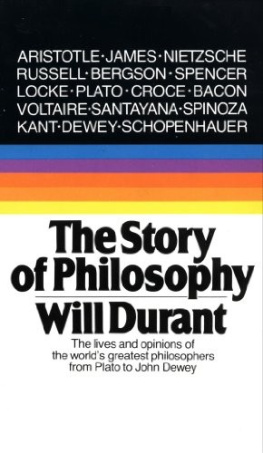Copyright 2015 by Zephyros Press, Berkeley, California.
No part of this publication may be reproduced, stored in a retrieval system or transmitted in any form or by any means, electronic, mechanical, photocopying, recording, scanning or otherwise, except as permitted under Sections 107 or 108 of the 1976 United States Copyright Act, without the prior written permission of the Publisher. Requests to the Publisher for permission should be addressed to the Permissions Department, Zephyros Press, 918 Parker Street, Suite A-12, Berkeley, CA 94710.
Limit of Liability/Disclaimer of Warranty: The Publisher and the author make no representations or warranties with respect to the accuracy or completeness of the contents of this work and specifically disclaim all warranties, including without limitation warranties of fitness for a particular purpose. No warranty may be created or extended by sales or promotional materials. The advice and strategies contained herein may not be suitable for every situation. This work is sold with the understanding that the publisher is not engaged in rendering medical, legal or other professional advice or services. If professional assistance is required, the services of a competent professional person should be sought. Neither the Publisher nor the author shall be liable for damages arising herefrom. The fact that an individual, organization or website is referred to in this work as a citation and/or potential source of further information does not mean that the author or the Publisher endorses the information the individual, organization or website may provide or recommendations they/it may make. Further, readers should be aware that websites listed in this work may have changed or disappeared between when this work was written and when it is read.
For general information on our other products and services or to obtain technical support, please contact our Customer Care Department within the U.S. at (866) 744-2665, or outside the U.S. at (510) 253-0500.
Zephyros Press publishes its books in a variety of electronic and print formats. Some content that appears in print may not be available in electronic books, and vice versa.
TRADEMARKS: Zephyros Press and the Zephyros Press logo are trademarks or registered trademarks of Callisto Media Inc. and/or its affiliates, in the United States and other countries, and may not be used without written permission. All other trademarks are the property of their respective owners. Zephyros Press is not associated with any product or vendor mentioned in this book.
ISBNs: Print 978-1-62315-637-4 | eBook 978-1-62315-638-1
CONTENTS























AUTHORS OF OUR OWN DESTINY
WORLD & AMERICAN POLITICS IN THE 21ST CENTURY

AN INTERVIEW WITH NOAM CHOMSKY
Q: Professor Chomsky, lets start with a basic question. Are people in control of their own destiny? More specifically, are American people fully aware that they themselves are the creators of their own laws, and how does that dispose them towards their institutions?
NC: First of all, the majority of American people today dont accept the assumption that it is they who create their institutions and who run their country. The last time I looked at the polls, about 80% of the population felt that the government is made up of a few big interests looking out for themselves and not for the people. You could see this at the elections. Although I dont have the exact figures at hand, theres a very striking fact: opinions of Congress are extremely lowin the teens. Nevertheless, probably 98% of incumbents get reelected. What this tells you is that, essentially, people are aware that they dont have a choice and that theyre not taking part in running the country. In fact, you can see this in many other ways: take April 15, the day when taxes are paid. In a democratic society, where people would feel that they are shaping their own lives, this would be a day of celebration. The spirit would be Were getting together as a community to put our resources into implementing policies that we have chosen. What could be better than that? Well, thats not the way it is here. Instead, its a day of mourning when some alien force that has nothing to do with us comes to steal our hard-earned money.
Q: Would you say that we have become so apathetic and conformist that we even lack the desire to resist?
NC: I dont think apathetic is the right word, Im also not sure conformist is the right word. People feel hopeless. Take the Obama campaign in 2008. Campaigns in the US are run by the public relations industry and elections are, basically, bought. The Obama campaign was a case in point. In fact, as you may know, the advertising industry gives an award each year for the best marketing effort of the year. In 2008 they gave it to Obama, whose campaign beat Apple in Best Marketing of the Year.
There was really very little talk about issues. Real political issues were off in the side somewhere and, to start with, most people didnt even know what they were. The words that were being repeated over and over again, in typical advertising campaign style, were hope and change. Well, thats meaningless. But it does work: advertisers understand popular moods. The people wanted hope and change which means that they didnt have hope and they didnt like what existed. Now, thats not apathy, its a mark of a kind of disintegration of society. Im old enough to have lived through a real depression, the Great Depression. My family were mostly working people, not well-off by any means. But, in a way, it was a less psychologically depressed time. There was a sense of hopefulness; the sense that there is a way out of this, that there are possibilities, things that can be done, like organize the CIO (Committee for Industrial Organization), get involved in programs of reformthere were opportunities to be grasped. There is no such general feeling in the country nowbut its not apathy. I think what it is is the success of an incredible propaganda campaign, the scale of which is very little understood, although theres good scholarship on it: after the Second World War, there was an enormous campaign by the business classes to drive out of peoples heads any conception of democracy, concern for one another, feeling able to do anything, and so on. And it had its successes.














